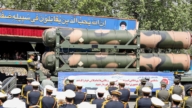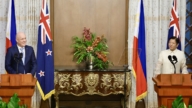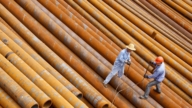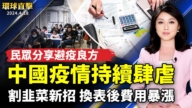【新唐人2014年12月12日讯】12月10号是世界人权日,在北京的上万名访民,分别前往联合国使馆区及信访局伸冤要人权,反而遭到中共警方大规模抓捕关押。而在当天,一岸之隔的台湾,总统马英九出席世界人权日活动时表示,台湾曾发生侵犯人权事件政府无从回避,必须彻底检讨。
1948年12月10号,联合国大会通过了《世界人权宣言》,并把每年的这一天定为国际人权日。中共自1991年以来,也先后发表了11份《中国人权白皮书》,并宣称中国在人权发展方面取得了进展。
今年人权日的口号是“人权365”,意为天天都是人权日。
10号,中共外交部发言人在记者会声称,中共高度重视促进和保护人权,始终将保障13多亿人民的生存权和发展权放在首位,人民享有的各项人权水平不断提升。不过,中共官方媒体当天并未发出有关人权日的相关报导。
那么中国的人权状况到底怎么样?让我们看看国际人权日,访民们在中国首都北京的情况。
10号一大早,在北京的上万名访民,陆续涌向位于亮马桥的联合国使馆区及信访部门伸冤,并要求当局尊重人权,尊重宪法赋予公民的权利。
北京警方如临大敌,在联合国使馆区附近的亮马桥地铁站的4个出口,以及附近的各个公交站,布控大量警察,大规模拦截抓捕访民。
10号早上9点多,武汉访民王芳刚走出亮马桥地铁口,就被抓捕送到关押访民的久敬庄,她说,当天武汉50多名在京访民基本都被抓了。
武汉访民王芳:“我们早上去的时候,亮马桥附近地铁站,四周全都是警察、警车,每一个口都有四、五十(辆)警车,四、五十(个)警察、好几台汽车,然后去的人基本用大巴车送到久敬庄。”
湖北访民尹旭安,早上10点左右来到亮马桥公交站附近拉横幅维权,他说,短短40多分钟内,看到8辆装满访民的大巴车开走了。
湖北访民尹旭安:“每个地铁口基本上,看到一个有一点像访民模样的人,他(警察)基本上去查一下身份证,因为现在身份证上面都有识别的,你如果是访民的话,设备马上就跳出来,他马上把你拉上车。”
尹旭安说,装满访民的大巴车,一辆接一辆的进入久敬庄和马家楼,久敬庄有大巴车排起了长龙,截止到下午3点多,至少有上万名访民被抓捕关押。
河南访民李治国:“中国的访民不如北京的一颗草,我们做人的权利被侵害,我们来在北京,睡在大路边,被北京的黑警察,撵过来撵过去,抓过来抓过去,睡在河边,他们也抓也撵,我们的问题没有人管,没有人问,中央派下去的巡视组,我们访民也见不到。”
河南访民李治国如今已走过28年的漫漫上访路,不但问题没得到解决,还多次被截访、拘留、劳教,他的儿子因他上访,被中共迫害得双手残废,妻子被迫害得双目失明。
青岛退伍军人高宏毅说,近几年,访民们在投诉无门的情况下,开始到各国驻华使馆前喊冤,但一到中共的敏感日,都会有大批警察布控,不让访民靠拢外国使馆。
青岛退伍军人高宏毅:“赶紧呼吁联合国帮一帮中国人,太惨了,你像我,你说当了一辈子兵,连个休都不给退,没吃喝的,整天在北京要饭,按照中国共产党党员权利保障条例,我去中纪委、监察部,还被拘。”
有网友直接建议说,国际人权日应改为“中国敏感日”为宜。
就在中共当局大肆抓捕关押访民的当天,台湾总统马英九,邀请350位走过五零年代白色恐怖的政治受难者和家属,出席官方举办的世界人权日纪念音乐会,并向他们道歉。
马英九说,台湾曾发生过侵犯人权事件,不论是228事件,还是白色恐怖等事件,政府无从回避,也不需要回避,诚实面对、诚恳检讨,才能还原历史真相,并让受难者家属获得心灵抚慰。
马英九还表示,保障人权是长期的工作,必须记取教训、检讨改进,才是一个负责任的政府。他希望人权保障不是只在人权日实行,而是一年365天都要确实贯彻。
采访编辑/李韵 后制/萧宇
World Human Rights Day: Taiwan Vs. China
On Dec. 10, Human Rights Day, tens of thousands of Chinese
petitioners tried to address their grievances to the UN,
foreign embassies, and the State Bureau for Letters and Calls
(SBLC) in Beijing.
While Beijing police were busy arresting and detaining
Chinese petitioners,
across the strait, Taiwanese President Ma Ying-jeou
spoke of governmental responsibility
for correcting errors during the White Terror
in an event in Taipei marking World Human Rights Day.
December 10, 1948, the UN General Assembly adopted
the “Declaration of Human Rights", and to this day each year
as International Human Rights Day.
Since the Communist Party published its first human rights
white paper in 1991 entitled “China’s Human Rights Situation",
the regime has published 11 white papers on Chinese human
rights and claimed China makes progress in its human rights.
This year’s slogan, Human Rights 365, encompasses the idea
that every day is Human Rights Day.
Foreign Ministry Spokesperson Hong Lei said in a regular press
conference on Dec. 10, “China attaches great importance
to improving and protecting human rights.
To guarantee 1.3 billion people’s right to subsistence and
development has always been on the top of our priority.…
the Chinese people are now enjoying a higher level
of human rights at every metric."
However, no human rights report was seen
in the Communist mouth piece.
Exactly what’s the current human rights situation in China?
Let’s take a look at Chinese petitioners in Beijing
on Human Rights Day.
Early in the morning, tens of thousands of petitioners flocked
to Liangmaqiao where the UN Development Programme,
embassies, and SBLC are located.
They sought to address their grievances and demanded respect
for human rights and the constitutional rights of citizens.
Beijing dispatched police to guard at all four exits of
Liangmaqiao subway station and bus stops.
9:00 am on the 10th, Wuhan City petitioner Wang Fang
was arrested and sent to black jail Jiujingzhuang around 9am
when she just arrived at Liangmaqiao Station.
She indicates that more than 50 Wuhan petitioners
have been arrested by Beijing police.
Wang Fang: “When we went there in the morning,
there were police and police vehicles around the station.
Around 40 to 50 police cars and police at every exit.
Those petitioners who went there were mostly sent
to Jiujingzhuang by bus."
Hubei Province petitioner Yin Xuan pulled banners
at the bus stop at Liangmaqiao around 10am.
He says that in just 40 minutes,
he had seen 8 buses loaded with petitioners going by.
Yin Xuan: “There were police at each subway exit checking ID
on anyone suspected to be a petitioner.
They scanned the ID to see if you are a petitioner.
If yes, they would pull you into the bus right away."
Yin Xuan says that buses loaded with petitioners went to
Jiujingzhuang and Majialou one after another.
There were at least 10,000 petitioners sent to the black jails
by 3 pm.
Henan Province petitioner Li Zhiguo: “Chinese petitioners are
worse than grass in Beijing. Our right is violated.
We come to Beijing, sleep on roadside.
Beijing’s police either kick us around or arrest us.
They’ll do the same even if we sleep by the river.
No one cares about our problems.
No one would bother, not the central inspection team either."
Li Zhigu has been a petitioner for 28 years.
Not only have his problems remained, but he has also been
stopped, detained and sent to labor camp many times.
His son’s two hands have lost function, his wife is blind,
the result of torture by the authorities
due to his role as a petitioner.
Qingdao City veteran Gao Hongyi explains.
Many Chinese have turned to foreign embassies these years
to redress their cases.
On the sensitive days, the police are dispatched to prevent
petitioners from getting close to the embassies.
Gao Hongyi: “Please call on the UN to help us.
It is too miserable.
Take me as an example. I have been a soldier for my whole life,
but I can’t even get an official retirement.
I have no food or water, but become a beggar in Beijing.
I sought my rights according to the CCP cadre regulation
to the Central Commission of Discipline Inspection,
the Ministry of Supervision,
but I was only arrested."
Netizens suggested to change the Human Rights Day
to China Sensitive Day.
When the Communist authorities were arresting
and detaining petitioners wantonly,
Taiwan’s President Ma Ying-jeou participated in an official
memorial concert that marks Human Rights Day.
Invited are also 350 victims and families of the 1950s’
White Terror.
In an address, Ma apologized to the victims and the families.
Ma Ying-jeou said, human rights violations have occurred
in Taiwan before, whether it is the 228 Incident or the White Terror,
the Government could not neglect or avoid them,
but face them with sincerity and honesty.
Only so will the historical facts be restored
and the victims and families receive comfort.
President Ma also said that the protection of human rights
takes time.
A reliable government must take from the lesson and improve.
He hopes protection of human rights does not just take place
on the Human Rights Day, but 365 days a year.
It takes solid and concrete implementation.
Taiwanese Human Rights Association of Canada President
Michael Stainton, indicated in 2013,
that decades ago, Taiwanese were scared totalk about politics
and human rights just like the Chinese today,
for fear of persecution, or being made to disappear,
imprisoned, or executed.
But, through unremitting effort, Taiwan has earned freedom
and democracy.
The awakened Chinese will surely gain what they deserve.
Interview & Edit/LiYin Post-Production/XiaoYu


























